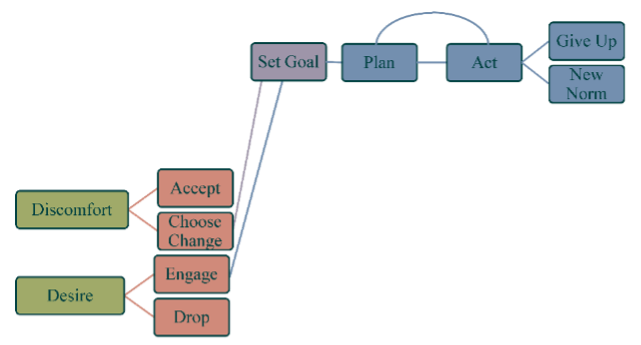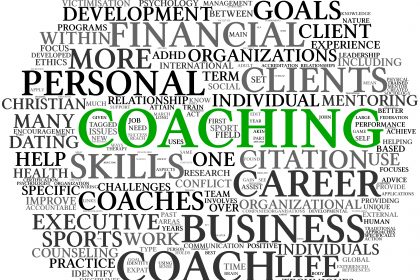Change is a constant. Humans are creatures of habit. These two sayings tell us that as much as we value routines, change will happen. Sometimes the change is thrust upon us and other times we proactively seek it. Some people resist change while others embrace it. Moving into change may be based on discomfort with the current state or it may be a desire for something.
The motivation for change may be external or internal. External is when it is for someone or something else, or to avoid a consequence. External motivators have a short-term impact. Internal motivators are based on values, desires, and meaning to the individual. Internal motivation has a long-term impact.
External motivators may include other people or temporary rewards. External motivators based on avoidance include loss – loss of a job, loss of money, etc. or a consequence such as a speeding ticket. Sometimes circumstances or even mood as a result of those circumstances can motivate change.
Internal motivators may be based on self-regard and speak to image, validation, or hitting bottom. Curiosity and passion are internal motivators. The desire for autonomy can be a strong internal motivator.
Whether the motivation comes from a negative place of discomfort or a proactive desire, there is a decision: accept the current state and let go of the desire or choose to engage in the change. When the choice is made to engage in change, the natural progression is to set the specific, measurable goal, plan, act, evaluate and adjust, and over time either give up or establish a new normal.

With change being an ongoing process, the new normal become something that is either accepted or it motivates a different change.
When coaching a client who is considering change, moving into change, and creating a new norm, helpful coaching questions include:
· What are your options?
· What happens if you move forward?
· What happens if you stay where you are now?
· What are the reasons to change?
· What are the reasons to maintain the status quo?
· What are the risks?
· What are the rewards?
· What is influencing your choices?
· What is your ideal outcome?
The exploration these questions invite will serve the coaching client.




